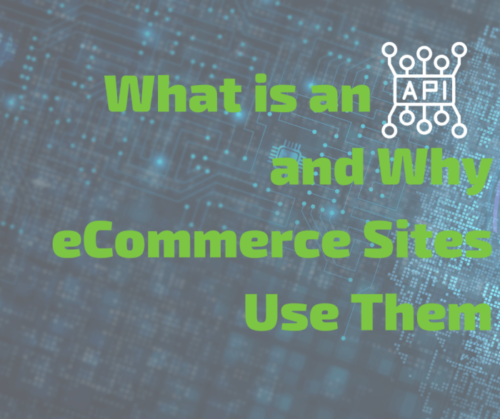Technically speaking, API is an acronym for application programming interface, and is considered a set of protocols for building application software. Practically speaking, APIs are the basis of much of what keeps people digitally connected. From apps on our phones apps to complicated flight control systems, APIs bring otherwise disparate systems together to create single platforms. They allow applications or IOT devices to access data and create gateways to interact with external systems.
They’re the connective tissues to bind the digital world together and can be inserted through simple HTML and without needing to know a programming language like python. For eCommerce businesses, APIs, and, specifically, web APIs, are an opportunity to use your platform to get better customer insights, provide additional purchase opportunities and more.
Companies have the opportunity to turn their entire business into a holistic platform that expands what existing architecture can do.
How APIs are Used Now
Banking
Travel
Searching on Facebook
Finding a New Restaurant
Staying up to date with social media
ECommerce Sites are Using APIs to Grow Customer Bases
API development is opening up new avenues — and in some cases, new revenue streams — for sites that properly leverage them. They’re helping customers find what they’re looking for and offer them related products that they weren’t necessarily looking for.
Brands are growing with connected social media accounts. Single products are being sold across multiple marketplaces, significantly expanding a company’s reach without minimal investment. The most successful eCommerce sites are using service APIs to their greatest potential and enjoying the benefits.
So, why should your site use APIs?
Move at the speed of business
Modern customers are accustomed to getting information immediately. They don’t want to call a brick-and-mortar location or a customer service number to see if you have the shirt they want in their size. They’re more likely to choose your platform if they can easily access inventory and buy directly from their phone.
Automating this process provides a superior customer experience and also relieves staff of an additional burden.
Quickly scale to meet changing needs
The eCommerce market moves quickly — really quickly. Businesses need to be able to adjust to changing demands on the fly all too often. Many don’t have the programmers to properly meet a surge in interest.
If an eCommerce company has an item that goes viral on social media, they don’t have the time to create, test and deploy a code update. The sales opportunity will have long passed if that happens.
An API, however, allows sites to scale up, on demand. Internal APIs connected to cloud computing providers keep sites up and running when traffic surges would normally knock them offline. APIs can mean more sales.
Keep data safe
Most feature strong API security that keeps data safe, whether in transit or at rest. Strong APIs take on the security burden and keep data – especially customer and payment data — safe from bad actors.
Technically, eCommerce sites aren’t even connected to third-party servers. Your site delivers data to the API and the API connects to the server, minimizing the risks associated with backend server vulnerabilities.



